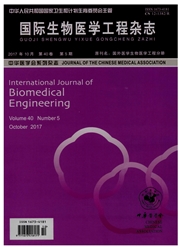

 中文摘要:
中文摘要:
细胞微囊化是将目的细胞包裹于一种或几种生物相容性良好且具有半透膜特性的材料内,既可实现免疫隔离、防止大分子免疫物质和免疫细胞攻击,又允许代谢产物、小分子营养物及细胞活性物质自由出人微囊。随着跨学科技术的不断进步,细胞微囊化技术显示出越来越广阔的应用前景,有望用于弥补器官移植的多种局限。同时随着细胞微囊化技术的日益发展和成熟,其在再生医学方面不断显示出强大的优势,必将推动人工细胞和人工器官领域快速发展。对细胞微囊的制作、微囊外膜对免疫大分子物质和细胞因子的作用、微囊外膜的免疫原性及细胞微囊化技术的代表性应用作一综述。
 英文摘要:
英文摘要:
Cell microencapsulation aims to wrap the living target cells by one or several materials with good biological compatibility and semipermeable membrane properties. Cell microencapsulation not only can achieve immune isolation and prevent the attacks by macromolecular immunes and immune cells, but also can allow the free access of metabolites, small molecule nutrients and hioactive substances to the microcapsule. With the continuous progress of interdisciplinary technologies, cell microencapsulation shows increasing application prospects of making up a variety of limitations of organ transplantation. Moreover, with the development and maturation of cell microencapsulation, it has shown a strong advantage in regenerative medicine, which will certainly promote the rapid development of artificial cells and artificial organs. In this paper, the preparation of cell microcapsules, the effects of the outer membrane of microcapsules on immunological macromolecules and cytokines, the immunogenicity of the outer membrane, and the representative applications of cell microencapsulation were summarized.
 同期刊论文项目
同期刊论文项目
 同项目期刊论文
同项目期刊论文
 期刊信息
期刊信息
